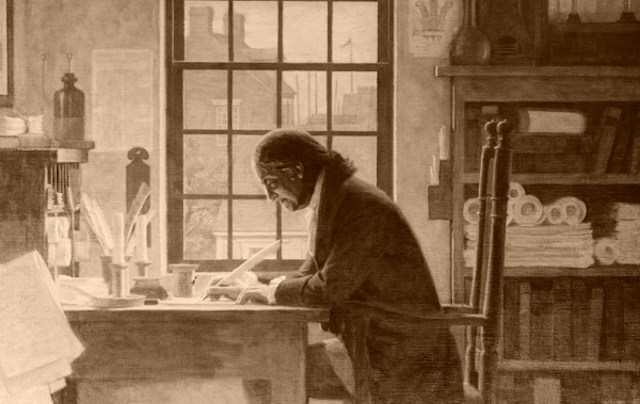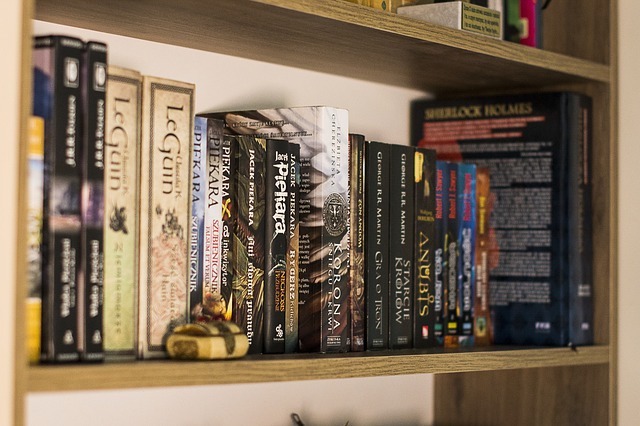Self-Publishing - How to Know If It’s Right For You
It has never been easier or more profitable to self-publish the right works for the right reasons. For the wrong reason, self-publication is as much a dead end as ever.

Frustrated writers often ask, What about self-publishing?
It has never been easier or more profitable to self-publish the right works for the right reasons. For the wrong reason, self-publication is as much a dead end as ever.
Let's get the wrong reasons out of the way first. For a novelist who thinks the big publishers just don't know an obvious New York Times bestseller when they see one, self-publishing is probably going to be a disappointment.
Now that we've cleared away a minority of those who are thinking about self-publishing, let's talk about who it can work for.
Who can self-publish profitably?
→ Nonfiction writers, such as Internet marketers, financial advisors, health and diet experts, may appreciate getting the entire profit from their books, rather than just royalties. These books can be either print or ebooks -- or both -- and can be sold from the author's website or through affiliate marketers.
→ Business owners, especially those who sell their goods or services over the Internet, can publish ebooks quickly and inexpensively and use the ebooks as incentives. The ebooks could also serve as a sampling of the entrepreneur's approach and style or as a handout for a class or workshop.
→ People who give public speeches and other events can market print-on-demand copies of their books.
→ Authors of books that reach a very small niche audience, such as a family history or ghost stories of a small town, can publish print on demand, with no upfront fee and all the production costs included in the per-copy price. I heard a story a few years back about a literary agent picking up a self-published local history while on vacation. She then called the author to offer representation and ended up selling the book to a big publisher. It doesn't happen often, but a well-written book that fits its niche just might make the leap.
→ A marketing genius, such as science fiction author Scott Sigler, can write an exciting novel, podcast it as a free audio book, and parlay the popularity into a contract with one of the big publishers. It doesn't hurt to come up with a basket full of great marketing ideas along the way.
Some things self-published authors should keep in mind
→ One of the things a publisher has traditionally been responsible for is marketing and publicity. A self-published author (and more and more these days, a traditionally published author as well) is responsible for marketing and publicity.
→ If you want to sell your self-published book through your neighborhood or online bookstore, you'll need an ISBN number (ISBN.org). You don't need an ISBN to sell the book in private transactions. How to get an ISBN is outside the scope of this article, but you'll want to decide before you print the cover.
→ Publishers have traditionally provided editing, fact-checking, proofreading, page layout, and design. There's a natural inclination for any writer (including me) to finish a book and say, "That's a wrap," and assume there is nothing else to be done with it. But a book riddled with inconsistencies, factual errors, and typos undermines its own credibility. An unprofessional cover suggests an unprofessional book. Self-published authors make a wise investment in a good editor, proofreader, and designer.
→ There are many new means of publication and distribution on the horizon for authors with information to share or a story to tell, as determined by the needs of their audience and limited only by their own imagination.
The bottom line
The arrival of print-on-demand and ebooks means that publishers no longer have to keep hundreds or thousands of copies of a book in inventory. It means that the book can be written in one place and printed closer to its delivery place, saving on shipping and handling.
An ebook doesn't have to be printed at all, but can be sold as a download, eliminating shipping and handling altogether.
Self-publishing can be one of an array of possibilities for a writer's work and the best option for some kinds of projects. It's worthwhile for every author to give it a look.
Read These Next
Learn to Write Like Ben Franklin
Ben Franklin wasn’t born a gifted writer. He had a rigorous and demanding method to improve his writing that you can use too.
YouTube Marketing For Books
The power of the internet gives authority to anyone who wants to use it for innovative and efficient ways to market products or services. The best video marketing strategy is YouTube marketing.
Trade or Mass-Market
For those new to the publishing industry, it is easy to get lost in the terminology used by the trade. Here's a brief rundown of some of those terms.






